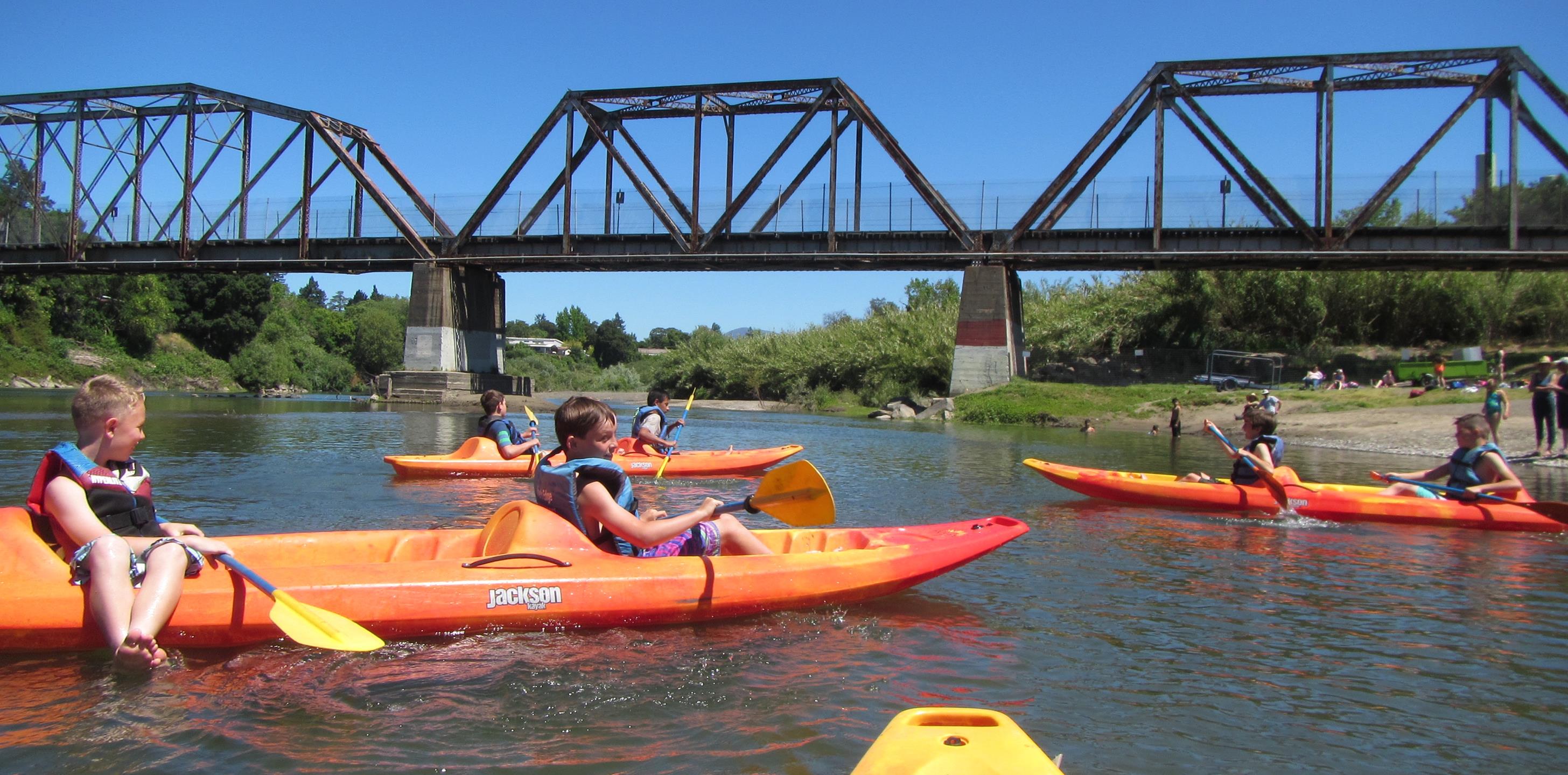
What’s summer without weekends on the water? Whether you’re heading to an alpine lake, a rushing river, or the ocean, California has endless shorelines to explore. There’s nothing like a day at the beach! Millions of Californians and tourists head outside every summer, and all of those visits can have harmful impacts on fragile aquatic ecosystems. Follow these tips to do your part to keep our beaches healthy.
Swim safely.
Make sure the water’s clean before you dive in. Check out the Waterkeeper Swim Guide app, which can connect you to beaches and swimming holes across the world. The database has seven thousand beaches, all marked with a green or red icon so you know when it’s safe to get wet. San Diego Coastkeeper also regularly publishes more specific advisories for the San Diego region.
Play lightly.
Try to leave your beach as you found it. You may think you’re cleaning the beach by raking or pulling weeds, but, in reality, you are harming a fragile ecosystem. Removing seaweed and natural debris robs crab, crustaceans and seabirds of habitat and food, while pulling perennial grasses and disturbing sand dunes can exacerbate erosion.
Don’t harm or feed the wildlife.
Unless you’re eating a balanced diet of fish, insects and kelp, don’t feed the locals. It will help keep marine populations healthy and avoid them becoming a nuisance (you don’t want your lunch playing out like a scene from The Birds!). During fish and turtle breeding season, also be careful where you build your sand castles. If you see a marine animal on the beach that appears injured or distressed, keep your distance and call the experts (like the Marine Mammal Center at 415-289-SEAL).
Keep it clean.
Summer crowds often mean overflowing trash bins, which can be blown into the water and harm aquatic wildlife. Straws, plastic bottles and disposable coffee cups are among the most common forms of marine pollution. So, buy that tote bag or picnic basket you’ve been eyeing, carry reusable bottles, and always take special care to pack out the straw or cap from your drink.
Use the bathroom, not the water.
Do your swim buddy a favor and use the facilities. In addition to the ‘yuck’ factor, urine and feces can spread disease. Keep your pet away from the water and clean up their waste.
Think of your underwater friends when choosing sunscreen.
While sunscreen is a lifesaver for humans, it can be toxic to aquatic organisms. Phytoplankton, fish and coral are particularly sensitive to common sunscreen ingredients that easily wash off so avoid lotions with oxybenzone, butylparaben, octinoxate, and 4-methylbenzylidine camphor. Take a shower before you apply sunscreen to get rid of any cosmetics or chemicals on your skin and simply use less by covering up.
Follow the rules.
Catch limits help keep fish populations at sustainable levels. Warning signs keep both you and wildlife safe. Park fees support visitor facilities, trails and services to help our special places thrive. Do your part to make sure summer stays sweet for future generations.
Show your beach some love.
Volunteer pick up trash or monitor water quality with your local Waterkeeper. Become a Yuba River ambassador and spend the weekends by your favorite swimming hole educating the public on river stewardship. Kick off your summer with Kids Ocean Day on June 1st or the Great Russian River Race on June 3rd.

Communications Consultant Lola Dvorak supports CCKA’s strategic communications by helping waterkeepers tell their stories.



